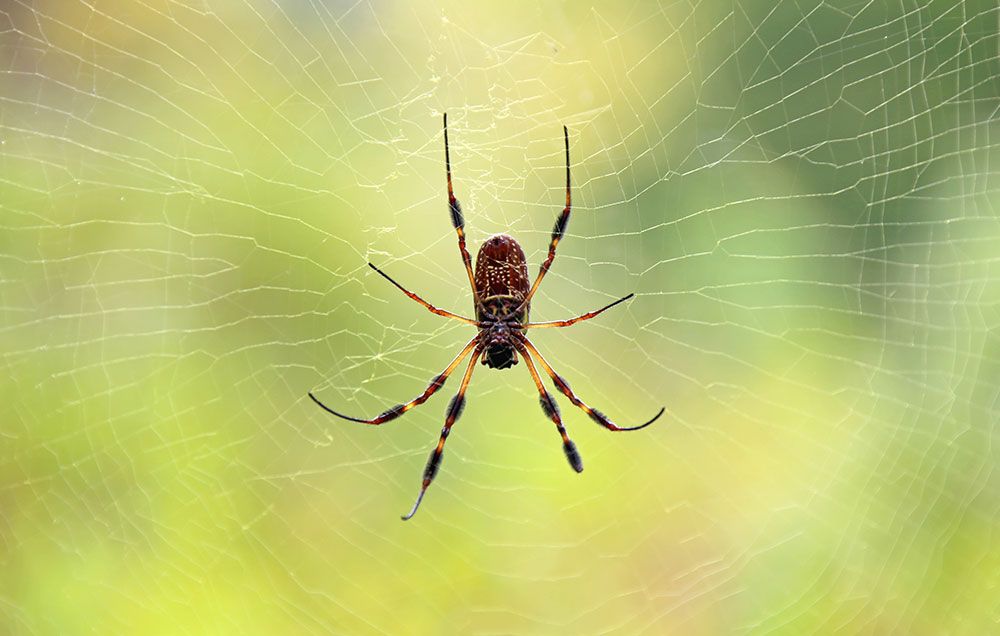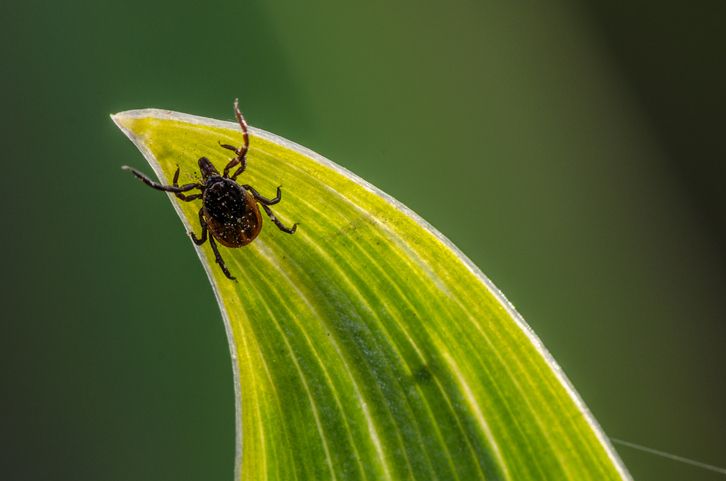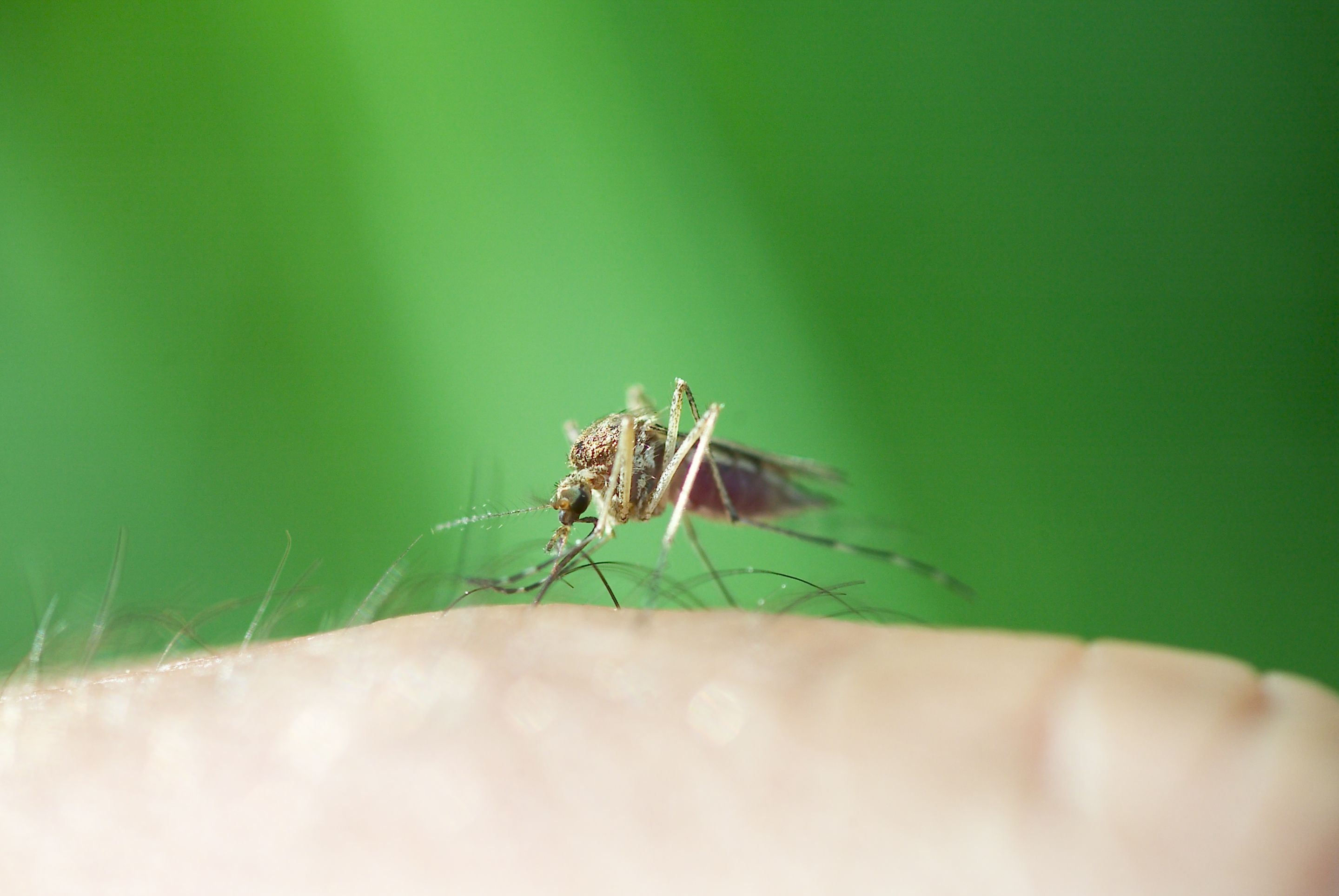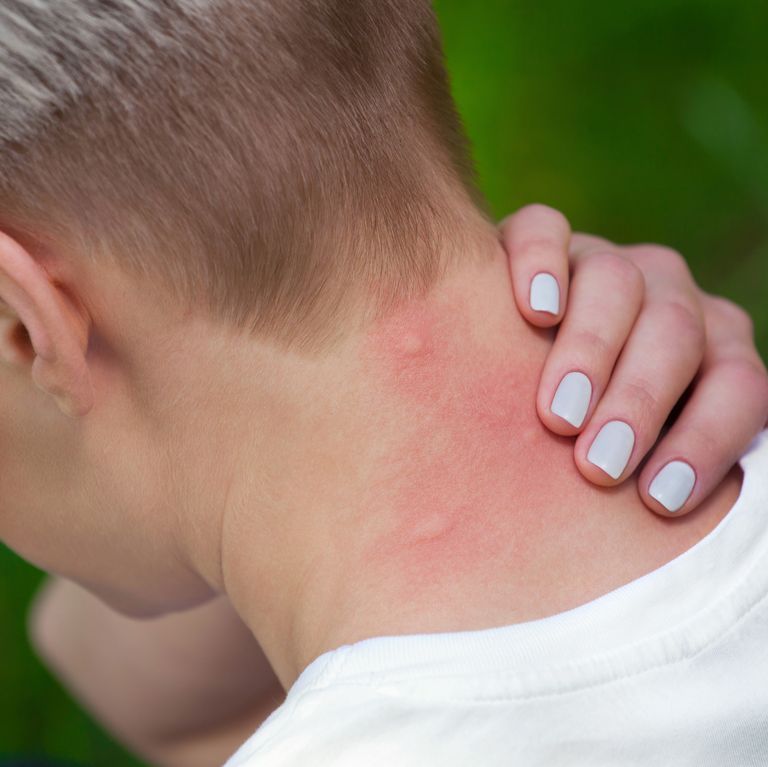
There are endless reasons to love the outdoors—running in the fresh air, campfires, star gazing, hiking, chasing your pup, the list goes on. Sadly, enjoying the wilderness also means you turn yourself into an all-you-can-eat buffet for biting mosquitoes.
You know how it is: one minute you’re picnicking in the grass, and the next you’re scratching an itchy, red, swollen bump on your leg. Thankfully, mosquito bites are generally harmless—but there are instances where you might need to go to the doctor for that bump, versus just treating it as an over-the-counter cream situation.
Mosquito bites are kinda just part of life if you plan on stepping outside at any point—and the more you know about how to identify them, treat them, and prevent them, the less of a pain they’ll be. Your mosquito-bite guide, ahead.
What does a mosquito bite look like?
Most mosquito bites appear as firm, red, itchy bumps, according to Hari Nadiminti, MD, chair of dermatology at Summit Medical Group in New Jersey. Here’s the bad news: This means mosquito bites look a lot like the bites from gnats, fleas, and even spiders.
“It can sometimes be difficult to distinguish [them from] other insect bites,” says Dr. Nadiminti, “but the context can be an important clue to diagnosis.”
In other words, if you didn’t have a bite before you went to that late-night bonfire on the beach and now you do, a mosquito is the most likely culprit. Mosquito bites are also common when you end up in one of their habitats, like when you:
- Spend time outdoors, especially at dawn and dusk when mosquitoes are active
- Hang around standing or stagnant bodies of water (everything from backyard pools and birdbaths to marsh lands) where they breed
- Walk or hike through tall grass and underbrush
In addition to the telltale itchy bump (which may be white and puffy or hard and red, depending on how long it’s been since the bite), other signs you’ve got a mosquito bite include blisters, dark spots, swelling, and hives, per the Mayo Clinic.
These mosquito bite pictures give good examples of what they can look like on different people:
https://www.instagram.com/p/B8cQmP6hS3A/https://www.instagram.com/p/B8YQp00nYq-/https://www.instagram.com/p/B8PN1MhF4Tf/https://www.instagram.com/p/B7RV8K3hGY4/https://www.instagram.com/p/B8geDWFF-WJ/
What causes a reaction to a mosquito bite?
If you’ve gotten one mosquito bite in your life, well then…you’ve gotten one mosquito bite. They’re all different. Some come and go with only minor itching, while others make you wonder if the bug that bit you was some kind of mutant species.



Why the discrepancy? It does, in some ways, come down to the individual mosquito. “The degree of reaction depends on the anticoagulants in the mosquito’s saliva [which help it feed],” says Dr. Nadiminti. “The nontoxic allergenic proteins in the saliva of a female mosquito is the main cause of the reaction, since male mosquitoes don’t eat blood.”
She adds that the symptoms we experience are an allergic reaction to those proteins, but interestingly, we react more strongly the more sensitized we become to mosquito bites (i.e. someone who’s never been bitten before might have no reaction at all).
Why do some mosquito bites get so big?
If you’re part of an unfortunate population of people especially allergic to mosquitos (an affliction known as “skeeter syndrome”), an otherwise annoying mosquito bite might turn into an ugly, swollen, and even painful welt. The skin may become hard or hot to the touch, and the reaction may extend several inches in diameter beyond the original bite.
Little kids, the elderly, and people with autoimmune issues are more likely to have these intense reactions, but since mosquito saliva is as unique and individual as the mosquito itself, your reaction can vary depending on the bug that bit you.
Should you ever see a doctor for a mosquito bite?
Usually, you won’t need to see a doctor for a mosquito bite. But if you’re having any kind of systemic reaction, like fever, body aches, or signs of infection, Dr. Nadiminti recommends seeing your doctor right away. Although mosquito bites are generally harmless, there can be secondary complications.
For example, scratching aggressively atbites can open up the skin, inviting infection. This may be on the surfaceof the skin or a deeper bacterial infection of the tissue, called cellulitis. Either kind of infectioncalls for prompt medical treatment.
Also, some mosquitoes carryviruses,like West Nile virus, eastern equine encephalitis, and Zika virus. If youexperience any of the following symptoms after a suspected mosquito bite,call your doctor or head to an urgent care facility ASAP: fever, chills,body aches, or other flu-like symptoms; headache; nausea and vomiting;joint pain; and confusion or disorientation.
How long does it take for mosquito bites to go away?
Unfortunately, you can’t make a mosquito bite go away, but most symptoms disappear within three to four days. (Some people may have a noticeable spot, mark, or faint scar where the bite was for several weeks after, especially if you have sensitive skin.)

What are the best at-home treatments for mosquito bites?
There are a few ways to treat a mosquito bite at home to keep the symptoms at bay. “The best at-home treatment is topical steroids to help reduce the itching and inflammation,” explains Dr. Nadiminti. “An over-the-counter topical steroid such as hydrocortisone would be a good first measure.”
You can also try treating your itchy bump with one of the following at-home remedies:
- Applying an ice pack
- Using calamine lotion
- Taking an antihistamine, like Benadryl or Zyrtec
- Applying a paste made from baking soda and water
- Taking an oatmeal bath
- Applying honey or aloe vera
- Chilling a witch hazel pad in the fridge for use as a cold compress (yes, the same ones you use for hemorrhoids…the astringent helps with itching and irritation!)
How can you prevent mosquito bites?
Once you’ve treated your existing mosquito bite, it’s time to prevent the next one (as much as possible, anyway). If you’re already doing your best to avoid places where mosquitoes like to hang out and you’re still getting eaten alive (or if you can’t always avoid mosquito breeding grounds), think about what you can to do protect your body from serving as a live buffet.
Use insect repellant.
The best defense against mosquito bites is bug spray. The CDC recommends using a repellent containing DEET, oil of lemon eucalyptus, or picaridin. You can also apply a chemical called permethrin to your clothing (but not to your skin). These products are generally considered safe for children over two months of age and adults, including pregnant women.
Cover up your skin.
If you have to be outside during an active mosquito time or in an area where they tend to congregate, wear long pants and sleeves, as well as closed-toed shoes, to limit the amount of skin left exposed to the little bloodsuckers.
Skip the black dress and perfume…and maybe the booze, too.
When you’re at a summer BBQ, pay attention to what you’re wearing as well as what you’re eating and drinking.
“Mosquitoes that feed in the daytime have been shown to be attracted to dark-colored clothing and certain types of fragrances,” says Dr. Nadiminti. “One small study showed that mosquitoes might be more attracted to people who drank alcohol.”
Keep your home uninviting.
Check the outside of your home frequently for areas where rainwater can pool. Turn over buckets and kiddie pools when not in use so they can drain. Clear your gutters. Also check the screens in your doors and windows for tears or holes (because we’ve all been bitten in the middle of the night while we were sleeping, right?).
The bottom line: Most mosquito bites are annoying but usually NBD. Still, if you think something weird is going on with your bite, or you’re unsure if it actually came from a mosquito, don’t hesitate to get it checked out by your doc.
Source: Read Full Article